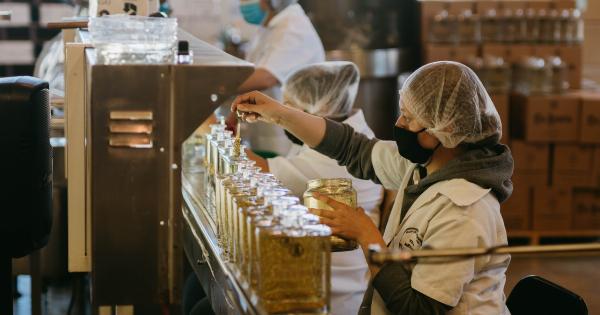Alcohol consumption is one of the leading causes of workplace accidents, absenteeism, and decreased productivity.
While there are many factors that contribute to an individual’s decision to drink alcohol, one of the key ones is work-related stress and long hours. Many people use alcohol as a coping mechanism to deal with the pressures of their job or to wind down after a long day at work.
However, what is the relationship between work hours and alcohol intake? Let’s dive into the research and explore the evidence.
What Does the Research Say?
Several studies have investigated the relationship between work hours and alcohol consumption, and the evidence suggests that the more hours an individual works, the higher the likelihood of them drinking alcohol and consuming more volume overall.
A study published in the journal Addiction found that long work hours were associated with an increased risk of heavy drinking and alcohol use disorders.
The study found that individuals who worked more than 48 hours per week were more likely to consume risky levels of alcohol, defined as more than 14 alcoholic drinks per week for women and more than 21 drinks per week for men.
Another study published in the journal Alcoholism: Clinical and Experimental Research found that higher job demands, lower job control, and longer working hours were all associated with higher alcohol consumption and a greater likelihood of binge drinking.
A meta-analysis of 61 studies found that working long hours was associated with an increased risk of alcohol consumption, particularly for men.
The study also found that working long hours was associated with an increased risk of alcohol-related health problems such as liver disease and alcohol dependence.
Why Does Work Hours Affect Alcohol Intake?
Several factors contribute to the relationship between work hours and alcohol intake. One of the most significant factors is work-related stress.
Individuals who work long hours are often subjected to high levels of stress, which can lead to anxiety, depression, and other mental health issues. Alcohol can temporarily relieve some of these symptoms, providing a sense of relaxation and comfort.
In addition, long work hours can limit an individual’s free time, making it challenging to engage in other stress-relieving activities such as exercise or socializing with friends.
As a result, many people turn to alcohol as a means of unwinding after a long day at work.
Another factor is social pressure. Many work-related social events often involve alcohol, such as after-work drinks or networking events.
The pressure to fit in and be sociable can make it challenging for individuals to resist the temptation to drink, even if they are not inclined to do so.
Implications for Employers
The relationship between work hours and alcohol intake has significant implications for employers. Alcohol-related incidents in the workplace can lead to a loss of productivity, injuries, and legal liabilities.
Moreover, the cost of healthcare for employees who suffer from alcohol-related health issues can be significant.
Employers can take several measures to mitigate the risk of alcohol consumption among employees. One approach is to provide access to counseling services and resources to help employees manage stress and improve their mental health.
Employers can also promote a healthy work-life balance by encouraging employees to take breaks, offering flexible working hours, and limiting overtime hours.
Moreover, employers can implement alcohol policies that promote responsible drinking and discourage excessive consumption.
This can include educating employees on the risks of alcohol consumption, providing non-alcoholic beverage options at work events, and prohibiting alcohol consumption during work hours or on company premises.
Conclusion
The relationship between work hours and alcohol intake is a complex one, with many factors contributing to an individual’s decision to drink.
However, the evidence suggests that long work hours increase the likelihood of alcohol consumption, and employers have a responsibility to mitigate this risk by promoting healthy work-life balance and implementing responsible drinking policies.































